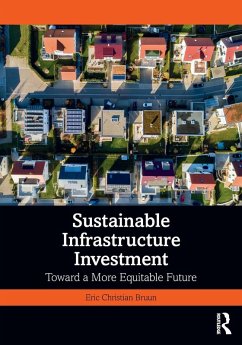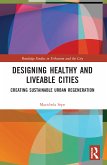This book provides examples and suggestions for readers to understand how public investment decisions for sustainable infrastructure are made. Through detailed analysis of public investment in infrastructure over the last few decades in the United States, the United Kingdom, and Finland, the author explores how the decision-making processes for major public works spending, many of them requiring quite rigorous and detailed computational methodologies, can result in plans that underserve large portions of the population, are inequitable, and fail to efficiently preserve public property. Beginning with some of the commonly offered explanations for the slow pace of investment and repair in a supposedly prosperous society facing serious environmental challenges, the book then explores media's role in shaping the public-at-large's understanding of the situation and the unimaginative solutions put forward by politicians. It continues with some case studies of infrastructure investment, or lack thereof, including an exploration of competing uses for government funds. It concludes with some suggestions. It is aimed at a large readership of professionals, students, and policy makers in political science, urban planning, and civil engineering.
"This is a very important book. It analyses a wide breadth of problems - concerning transportation, education, health care and others - across the whole policy spectrum. It does so in three different countries (the US, the UK and Finland) with three very different systems of political economy and governance. 'Systems' is a key word here because the systematic inter-relations of cause and effect with regard to policies, is necessary to understand why, what often seem on the surface to be wise practices, so frequently fail. The answer as to why such occurs is both simple and complex. The simple answer is that purported policy solutions to problems when considered in isolation usually produce unintended consequences. Of course, there is a more complex answer as well, and Dr. Bruun provides it . . . in case after case. His cogent arguments and sound logic are matched by a wealth of empirical fact . . . as said before, embracing problems and issues across three very different political-economic systems. This is a very important book!" Garry Potter, Professor of Sociology, Wilfred Laurier University Waterloo, Ontario, Canada
"It suggests hope for a better future, and in fact I see the book as being well sprinkled with constructive ideas on how we can do better in the future." Glen Weisbrod
"It suggests hope for a better future, and in fact I see the book as being well sprinkled with constructive ideas on how we can do better in the future." Glen Weisbrod








